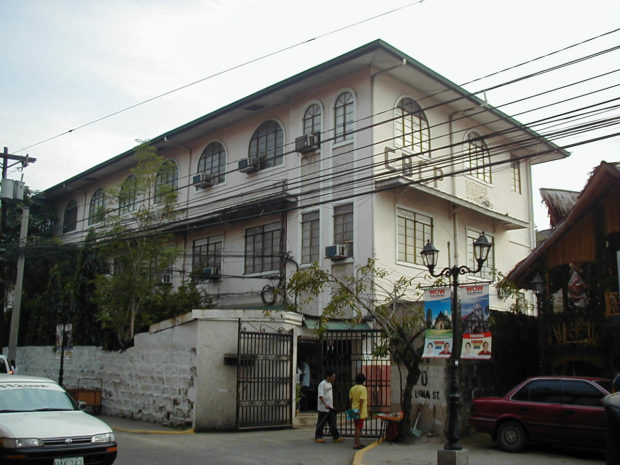
Facade of the Catholic Bishops Conference of the Philippines (CBCP) in Intramuros, Manila. (INQUIRER FILE PHOTO)
MANILA, Philippines — The Catholic Church in the country has added its voice to the growing concern over human trafficking cases, as it launched a campaign against this vicious crime and marked the first Sunday of February as a National Day of Prayer and Awareness against Human Trafficking.
Today, therefore, marks the first observance of that annual event, which an affiliate of the Catholic Bishops’ Conference of the Philippines (CBCP) had recommended to the organization when the country’s Catholic bishops gathered late January for the first of their biannual plenary assembly.
A special Mass led by Bishop Mylo Hubert Vergara, the CBCP vice president, will be held at the Edsa Shrine at 12:15 p.m. Some survivors of human trafficking and social workers involved in the care of those victims have been invited to the Mass to deliver their remarks.
Jerome Secillano, the CBCP spokesperson, told the Inquirer when asked about today’s activity that “the church has always been concerned about protecting those whose rights are violated.”
“The church can’t be passive, hence her involvement in putting a stop to this vicious crime,” he added.
‘Vulnerability’
The Episcopal Commission for the Pastoral Care of Migrants and Itinerant People, an advisory body of the CBCP regarding migrant concerns, had recommended to the bishops that they consecrate one Sunday of the year in behalf of trafficking victims.
Besides the commission, the CBCP also has a Cluster against Human Trafficking. On Saturday it noted “the vulnerability of many people, especially the poor, [which] has forced them to be victims of sexual exploitation, early or forced marriages [while] children are recruited as young combatants.”
The significance they now accord to this first Sunday of February is also timed with the International Day of Prayer and Awareness against Human Trafficking on Wednesday.
Furthermore, Feb. 8 is also the feast day of St. Josephine Bakhita, patron saint of victims and survivors of human trafficking.
Born in 1869, Bakhita was a slave in her native Sudan who was eventually brought to the custody of Canossian sisters in Italy where she became a nun. She died in 1947 and was canonized in 2000, the first Black woman given that honor by the Vatican.
‘Action program’
The CBCP also said it will develop a “vigorous education and action program … to trace and track down areas where human trafficking is rampant,” as it encouraged dioceses to form their own “committees” that would monitor any suspicion of unlawful recruitment in their communities.
“We aim to develop capacity and structure in [those] dioceses, in the spirit of respect for human dignity and human rights … to respond to the situation that the local communities face,” the Cluster said in its statement on Saturday.
Secillano said the CBCP has also partnered with other Christian groups who have called themselves the “Philippine Interfaith Movement Against Human Trafficking.”
Moreover, the bishops have reached out to other religious groups across Asia where human trafficking has been increasingly reported in various cities and other localities.
Secillano acknowledged that the CBCP has yet to tap other stakeholders in civil society, which could provide such crucial support as legal services and shelters for victims. He urged Catholics across the country to take part in forums, consultations, and other activities being planned by the CBCP.